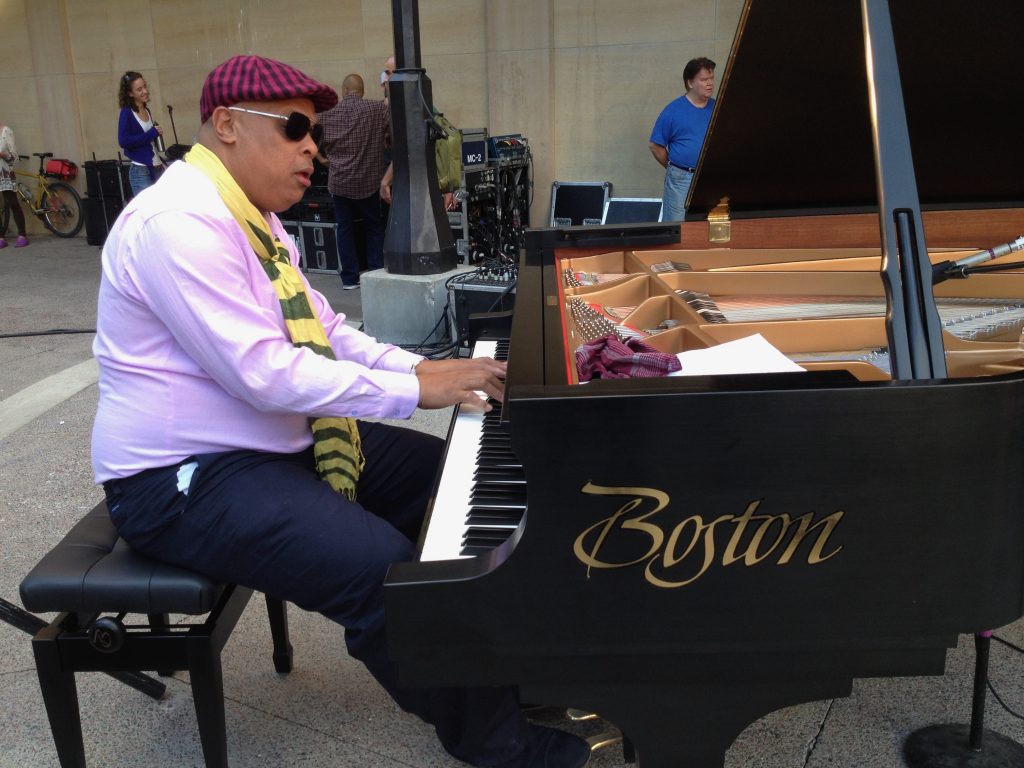In recent years, a number of blogs and opinion pieces have circulated online casting doubt on the legitimacy of Boston and Essex pianos and their connection to Steinway & Sons. While it’s perfectly reasonable for consumers to research and ask tough questions, some of these sources have spread confusion by presenting misleading claims or omitting important context.
By design, this has led many piano buyers to second-guess whether Boston and Essex pianos are truly part of the Steinway family — and whether they offer real value. Let’s clear things up with insight from trusted industry sources and firsthand experience from those who know these instruments best.
Boston and Essex Pianos Are Designed by Steinway & Sons
Despite what some blogs suggest, there’s no mystery about who designed Boston and Essex pianos—respected sources make it clear they come straight from the Steinway & Sons team. According to The Piano Book by Larry Fine, an industry-standard resource, Boston pianos were indeed designed by senior mechanical engineer Susan Kenagy and Bob Dove, who served as Steinway & Sons’ Director of Manufacturing and Design. The Boston line represents a serious design effort by Steinway, not a badge-engineering exercise.
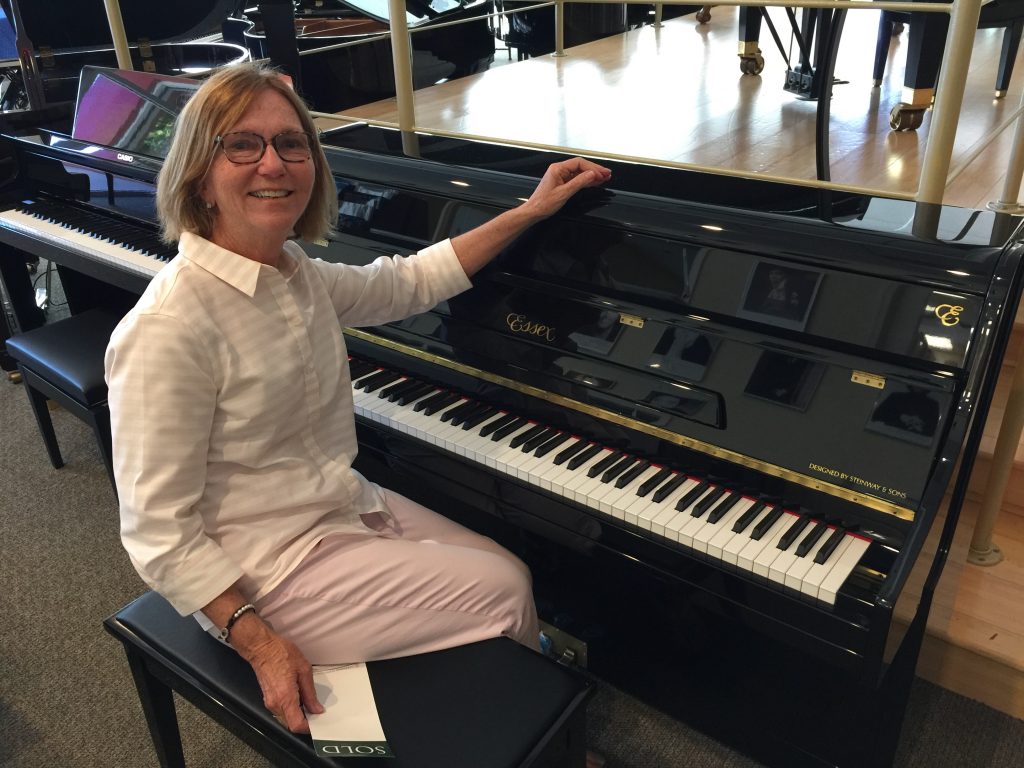
Similarly, the Acoustic & Digital Piano Buyer (Spring 2016 edition), also edited by Larry Fine, explains clearly that Essex pianos are “designed by Steinway & Sons engineers.” They explain further on their website that, “The pianos are entirely new designs by Steinway engineers, not warmed-over designs from other companies.”
Clearly, these instruments are not generic pianos with a Steinway label slapped on; they reflect distinct engineering choices rooted in Steinway & Sons design philosophy—what you may call their ‘DNA.’ This is also backed up by respected, independent sources like the Piano Buyer website and detailed specifications—not just Steinway’s own materials or what dealers say.
Further reinforcing this, the Artist Pianos guide highlights that Essex pianos, despite their affordability, incorporate every premium design feature known to enhance performance and longevity. Unlike other manufacturers that reserve such features for higher-priced models, Steinway & Sons applies its ‘one-piano philosophy’ across all Essex models, ensuring consistent quality and design integrity.
Boston Pianos Are Preferred by Institutions – for Good Reason
It’s also important to address the implication that Boston pianos are not well received by schools and institutions. In our experience — and in the broader piano world — this simply isn’t true.
Since the introduction of the Boston piano, the number of All-Steinway Schools — institutions that use only Steinway-designed pianos (including Steinway & Sons, Boston, and Essex) — has grown exponentially across the U.S. and internationally. Prestigious examples include the Yale School of Music, Oberlin Conservatory, Cleveland Institute of Music, the Curtis Institute of Music, and even our own Bower School of Music and the Arts at Florida Gulf Coast University. These designations represent a significant investment and commitment to Steinway-designed pianos.
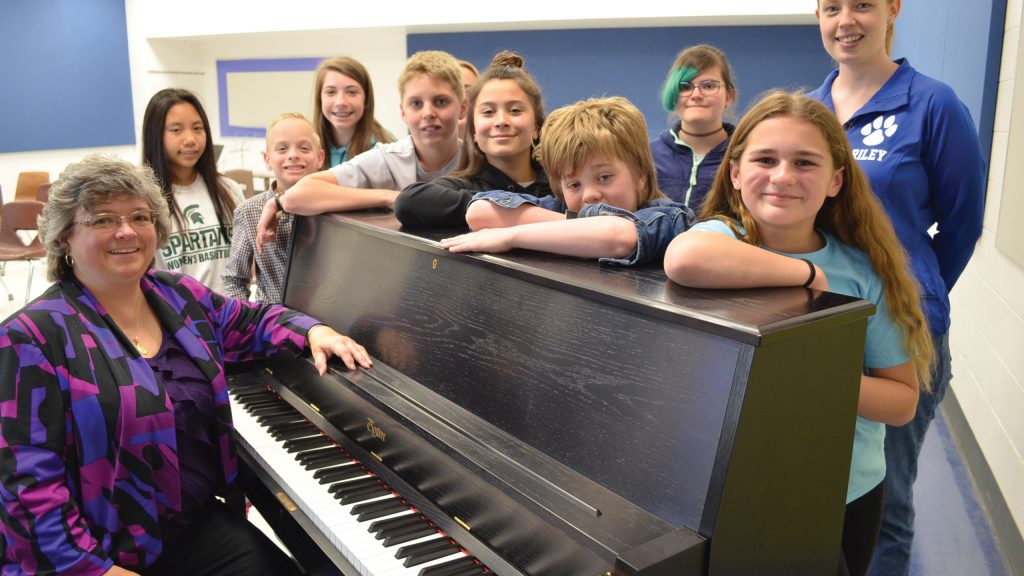
Livonia, Michigan students with a new Boston upright piano that the students named “Bert.” The district purchased a total of 33 Steinway-designed pianos.
When universities and conservatories make purchasing decisions, they do not do so lightly. These are often multi-million-dollar investments involving committees of faculty, technicians, and pianists who conduct side-by-side evaluations of a variety of brands. The selection of Boston pianos over other brands like Yamaha and Kawai reflects a preference for Boston’s superior design, materials, and the consistent performance they offer in educational settings.
Boston pianos incorporate Steinway’s patented wide-tail design, solid Sitka spruce soundboards, and an all-wood action — all features typically found in higher-end performance pianos. These design elements are not just marketing points; they translate to tangible benefits in tonal richness, dynamic response, and long-term reliability.
Manufactured Under OEM Agreements, but to Steinway & Sons Specifications
While Boston and Essex pianos are manufactured by Kawai and Pearl River respectively, this is not uncommon in the piano industry — and it doesn’t make their Steinway design any less real. OEM manufacturing simply means the pianos are built by capable partners under contract – using Steinway’s designs, specifications, and quality controls. The result is pianos that are “more musical piano than (are) usually available from that part of the world,” says pianobuyer.com.
To say these pianos “have more in common with Kawai” or Pearl River pianos than with Steinway pianos is simply not true. Kawai and Pearl River build Boston and Essex instruments to Steinway’s design specs, not theirs. A Ford built in a Mazda plant is still a Ford, just as a Boston or Essex piano remains a Steinway-designed instrument.
The Trade-Up Promise Reflects Confidence, Not Confusion
Steinway & Sons 10-year full trade-up policy for both Boston and Essex models — “The Steinway Promise” — underscores the company’s confidence in these instruments. In fact, Steinway & Sons is the only piano maker in the world to guarantee the trade-in value of their instruments, which speaks volumes about how seriously they stand behind the quality and longevity of their designs.
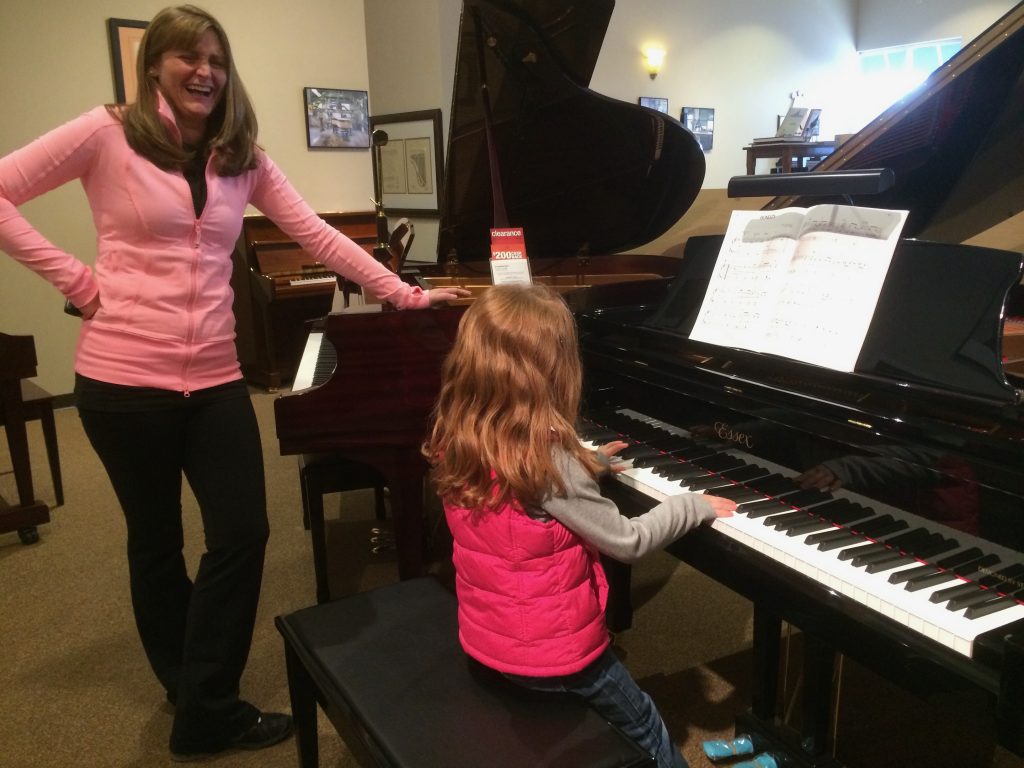
This family’s new Essex piano will be eligible for trade up within ten years thanks to the Steinway Promise.
The idea that this policy somehow diminishes the value of Boston or Essex pianos misses the point entirely: Steinway created these lines as a way to offer their design and performance standards at more accessible price points. Far from being an afterthought, they’re an intentional and respected part of the Steinway family.
Boston and Essex Pianos Offer Exceptional Value and Quality
Boston and Essex pianos provide musicians with access to Steinway’s design excellence at more accessible price points. These instruments incorporate many of the innovations and quality standards that define Steinway & Sons pianos, offering exceptional value without compromising on performance.
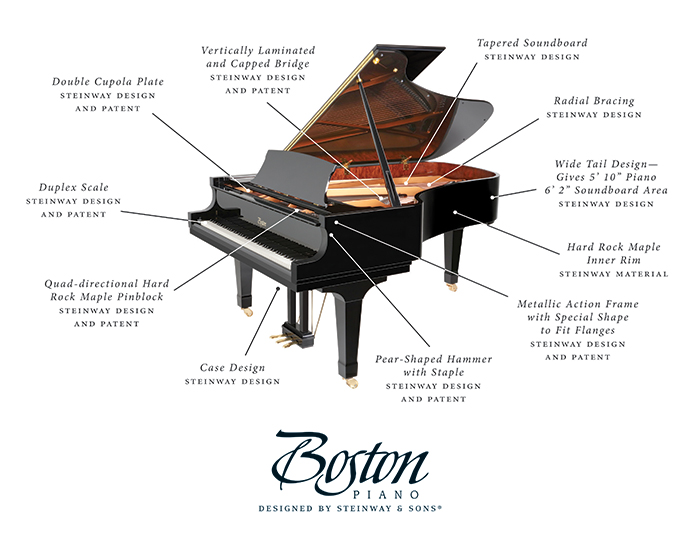
Boston pianos have unique Steinway-designed features. While some other brands may have some of these benefits, no other pianos have all of them in one piano.
Their widespread adoption in educational institutions and among discerning pianists attests to their quality and the trust they have earned in the musical community.
Let’s Set the Record Straight
Boston and Essex pianos are not “badges” or marketing stunts – they are thoughtfully engineered, well-built instruments created by the most respected name in the piano world.
It would be fair to say that Boston was the most successful introduction of a piano brand in the twentieth century and that Essex has been the most successful of this century. Suggestions that Boston and Essex pianos are misleadingly marketed or fall short of the Steinway & Sons name overlook both the clear facts and the strong reputation these instruments have earned among experts and institutions alike.
Piano buyers deserve honest, complete information — not confusion or half-truths. When all the facts are on the table, Boston and Essex pianos have a great story to tell.
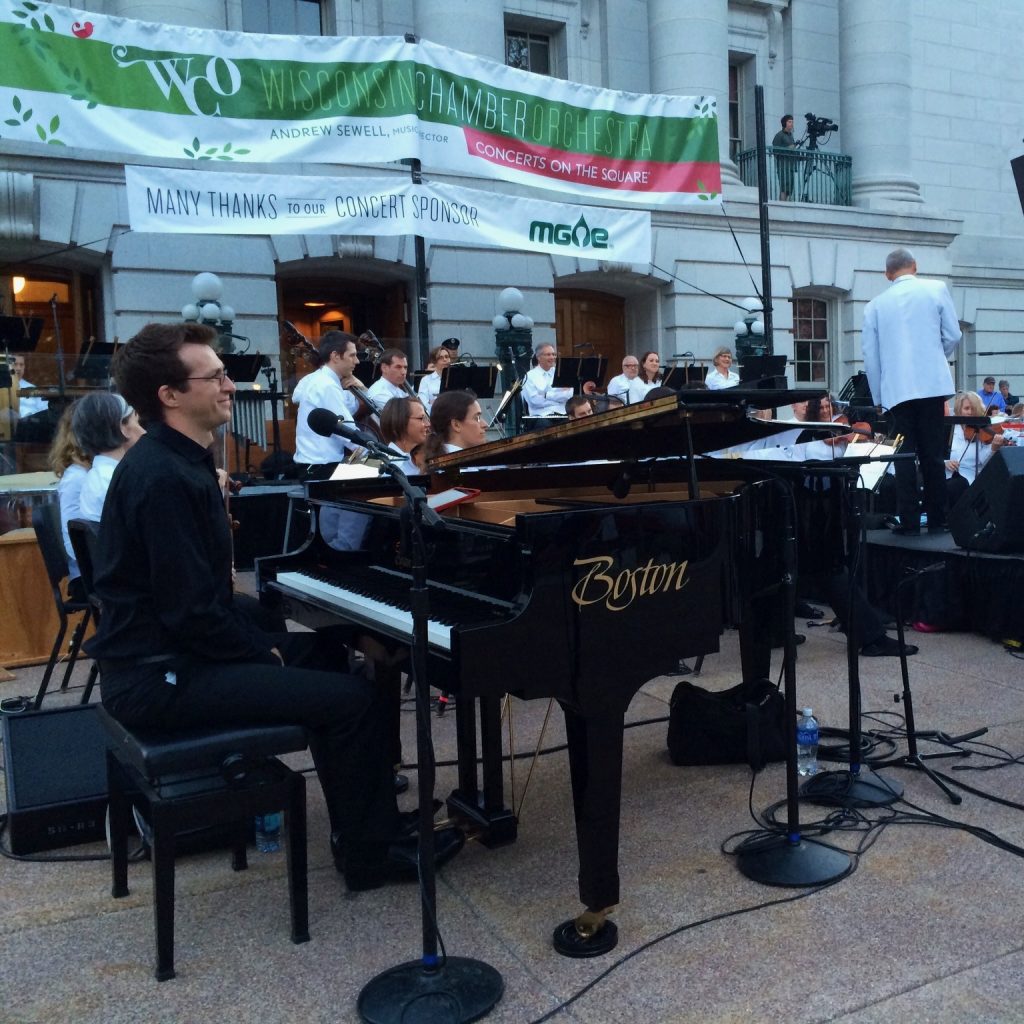
A Boston grand piano outside the Wisconsin State Capitol at a performance of the Wisconsin Chamber Orchestra’s “Concerts on the Square” series in 2014.
